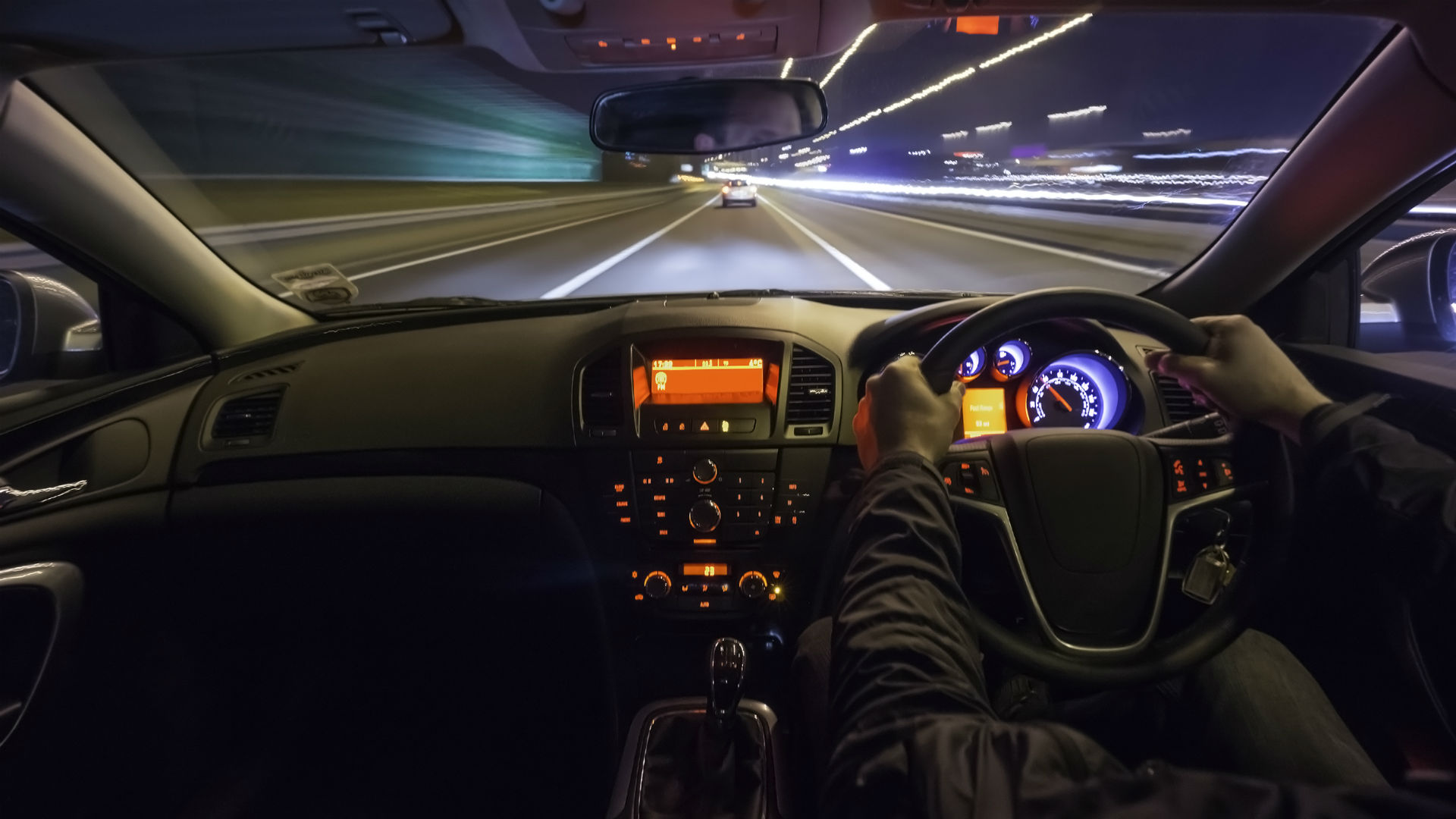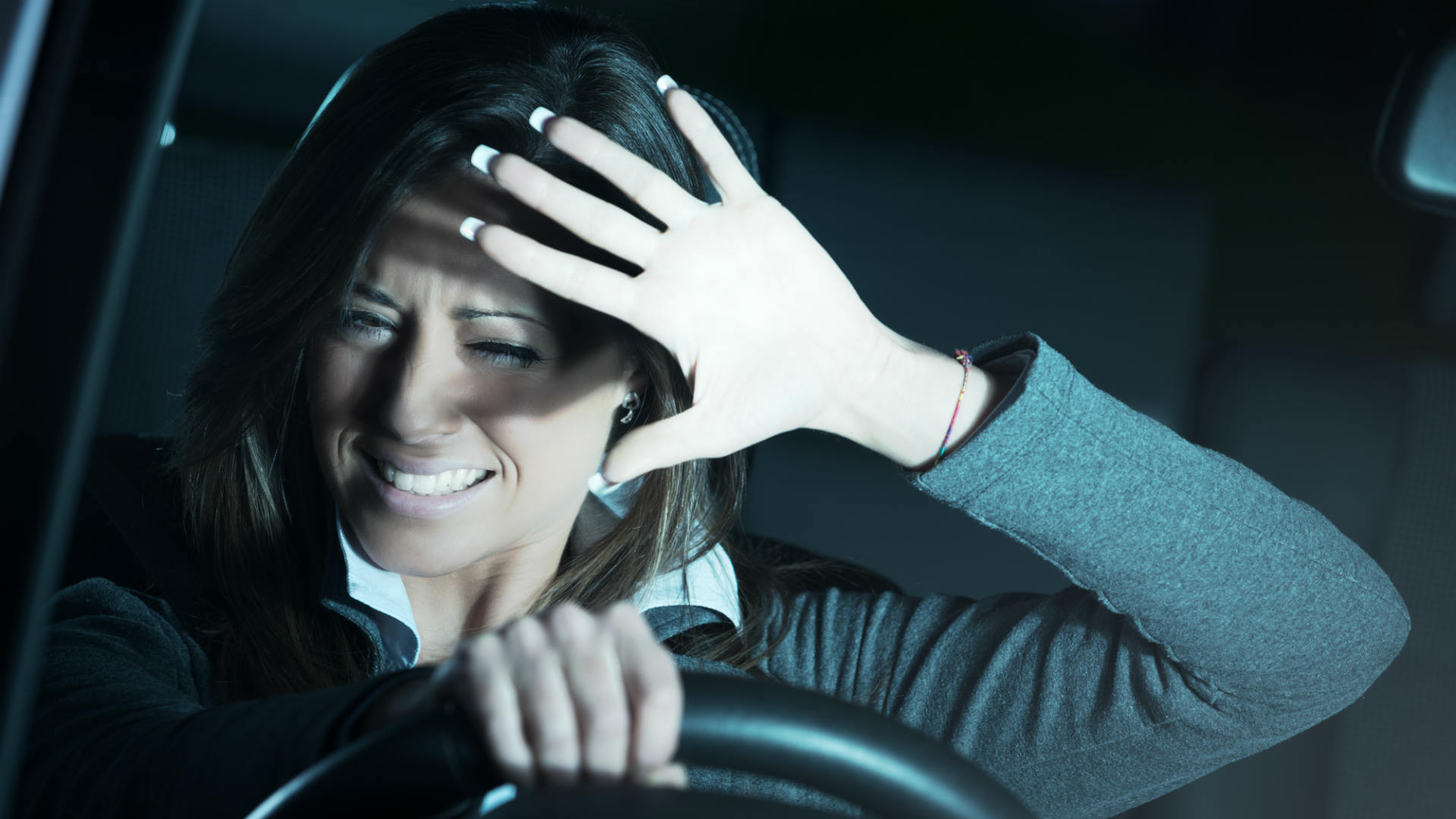
Thirty-one percent of Britain’s 38 million drivers are too scared to drive at night, according to a new study.
Figures released by RoSPA (The Royal Society for the Prevention of Accidents) show that 40 percent of all road accidents occur in the hours of darkness.
Falling asleep at the wheel is a significant factor, accounting for 20 percent of serious accidents on motorways and monotonous roads in Britain. Reduced visibility is an obvious danger – the distance a driver can see is shortened and it takes time for eyes to adjust to the dark.
It’s also harder to judge speed and distance, so other cars could be travelling faster than expected.
Essilor, the lens manufacturer behind the new study, found that 91 percent of drivers are regularly dazzled by oncoming traffic. Government data shows that around 300 collisions every year are caused by glare.
Driving at night is a glaring issue

RoSPA says that, between the ages of 15 and 65, the time it takes to recover from glare increases from one to nine seconds.
Dr. Andy Hepworth from Essilor said: “With such short days in the winter – and driving conditions frequently made worse by the British weather – often people have no choice but to drive in the dark.
“But this means that we face glare from oncoming traffic and other light sources, which is arguably the biggest issue regarding the reduction or loss of visibility, and glasses lenses can actually create more reflections impacting your vision further.
“There are a couple of other factors that hinder your vision at night as well. If you try to see something in the presence of ‘over-bright lights’, this can cause your eyes to tear up, smearing your vision. Low-light levels lead to a reduction in the contrast of images.
“Combine the two and night driving can seem like a nightmare. If you’re dazzled by glare at night when you are travelling at a speed of around 60mph, it can almost double your stopping distance. That’s a significant difference.”
How to improve nighttime vision to stay safe
Essilor has compiled a list of seven ways to improve nighttime vision, helping motorists to stay safe when driving in the dark.
- Keep windscreens clear: make sure the outside of the windscreen is clean and streak free. Keep the washer fluid topped up and carry a microfibre cloth in the glovebox to keep the inside of the screen clean.
- Use anti-glare lenses: ask your optician about spectacle lenses designed to reduce glare and reflection
- Check and adjust mirrors: dip the rear-view mirror at night or consider a car with an auto-dimming rear-view mirror.
- Dip, don’t dazzle: remember to dip your headlights when faced with oncoming traffic. You should also adjust your lights when carrying heavy loads.
- Slow down or stop: if you’re concerned about vision, stop the car. Pull over in a safe measures and make adjustments to improve your vision.
- Adjust your eyes to the dark: give yourself a few minutes behind the wheel to allow your eyes to adjust to the dark.
- Keep your distance: it’s harder to judge speed and distances at night, so allow more space between you and the car in front.
Nothing there about the extreme bluey-whiteness of modern headlights which exacerbate the glare versus ‘warmer’ coloured lights, nor about the problem of idiots using their headlights (sadly all too often on an automatic setting, which skips the all important ‘sidelight’ manual setting) when still daylight but a wet road … the glare is worsened by that reflected off the road when mere sidelights would not, nor anything about the general cult of thinking it fashionable and clever – surely Minis are the worst for the fashion-statement headlight use – and (mistakenly believed always ‘safety first’) to use blinding headlights in eg. daytime or dawn/dusk as opposed to sidelights.
Why doesn’t this article discuss the debacle of LED and HID headlights that cause the glare? The author is correct the glare causes serious problems, but when car makers are increasing the glare by using 5000K-6500K LED headlights, why aren’t our governments demanding recalls of these LED light weapons?
Thank you for your input, Mark… consider it something we’re going to look into.
Hurrah, hurray! Another sensible person stating the obvious amongst a sea of ignorant “Emperor”s new clothes” types who all literally blindly accept the fait accompli of LED headlights/running lights and the widespread misuse of all headlights when none, or mere sidelights, are the preferred (common sense and statute) choice.
Do Governments turn a blind eye because the EU have dictated that member states cannot object? Is it some kind of stitch up between the EU and the likes of Audi who seem first with these crazy schemes, eg. the dangerously distracting and disorientating ‘running light’ craze then, with Mercedes and BMW LED headlights, and auto-on switches that both skip the all important dawn/dusk sidelight phase + bring headlights on when ambient light is still adequate, then Audi again for the introduction (again, UK Government acquiescence) of those ineffective indistinct and generally near invisible scrolling indicators?
The anti-glare lenses mentioned are not enough to combat the glare from LED headlights for some people. Brighter is not always better when it comes to lighting. There is something wrong with the technology if a significant number of people are having to buy special glasses to drive at night when they didn’t have to before. Also it’s age discrimination. Older people have more trouble with the lights as the retina takes longer to recover from each instance of glare. At a time when loneliness is a big problem for the elderly we should not be isolating them (forcing them to stay at home in the evenings rather than socialising). A classic case of unintended consequences.